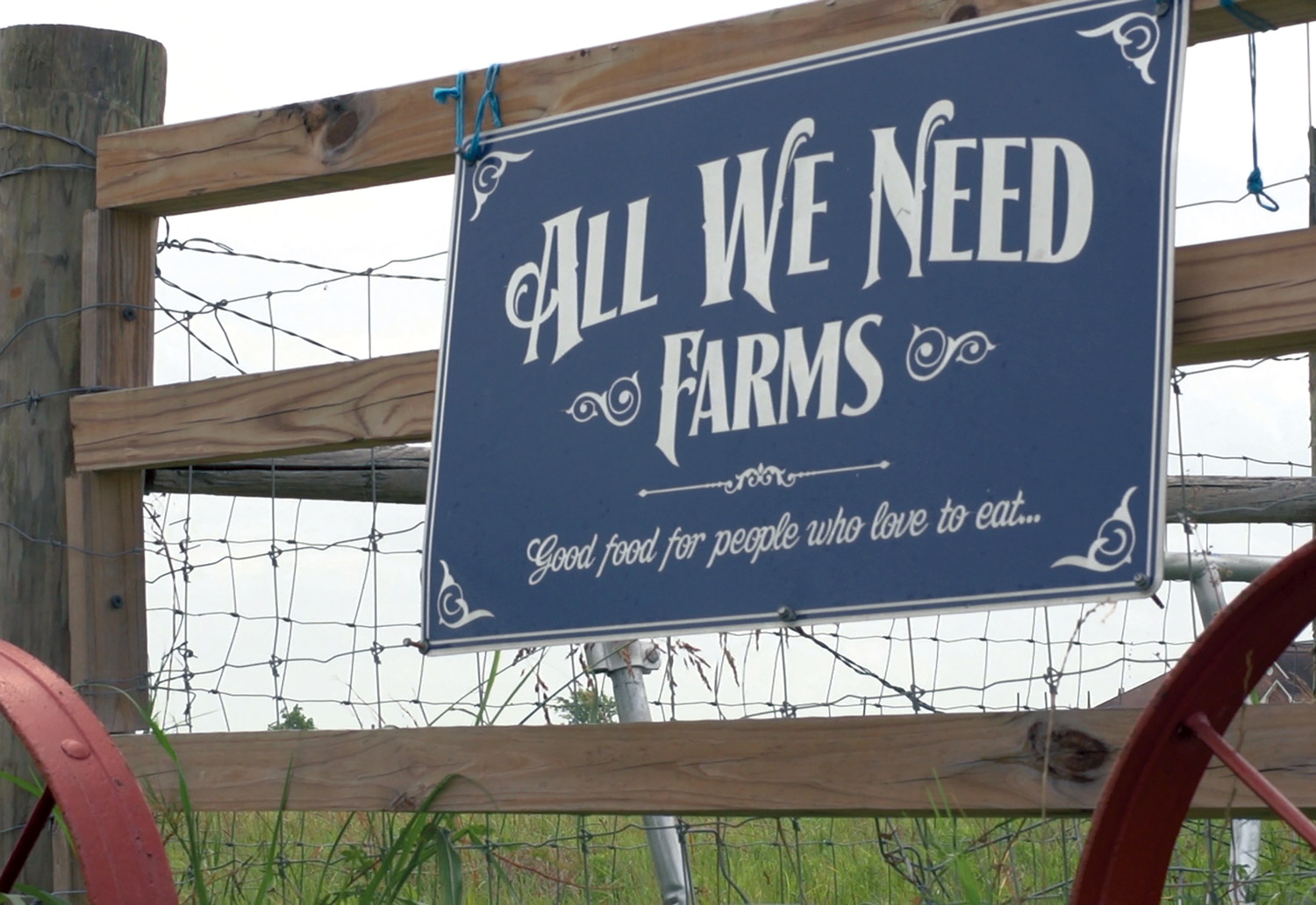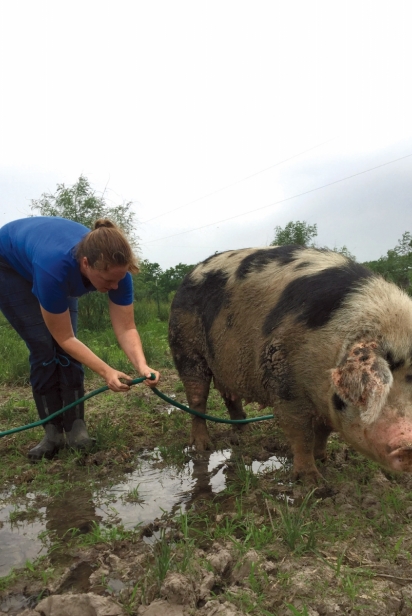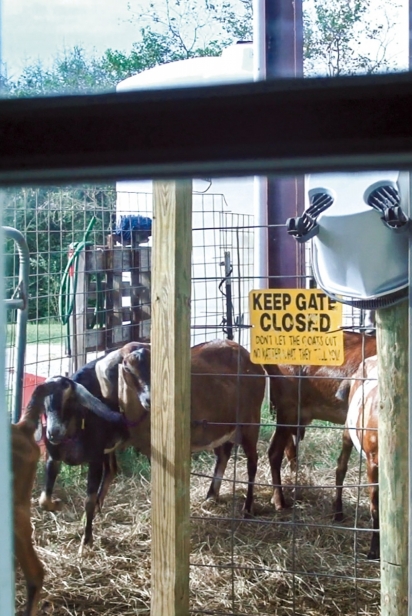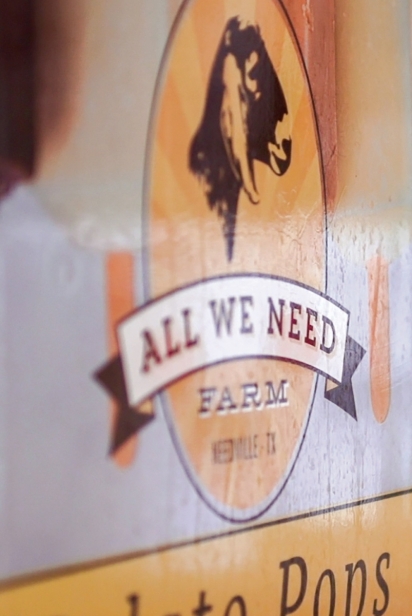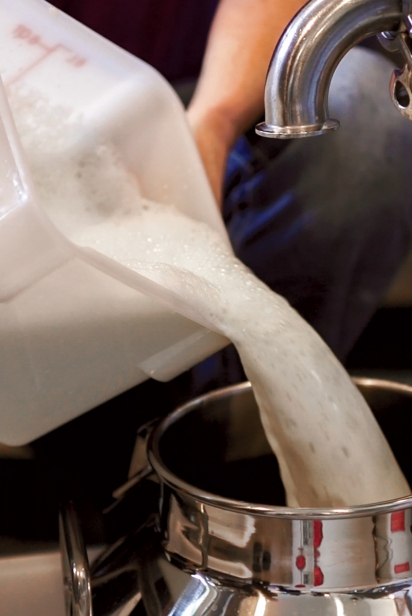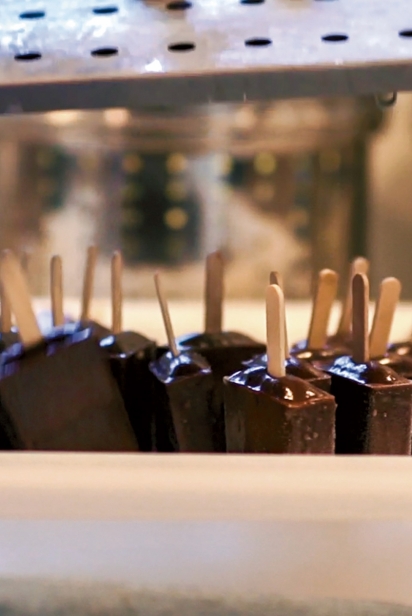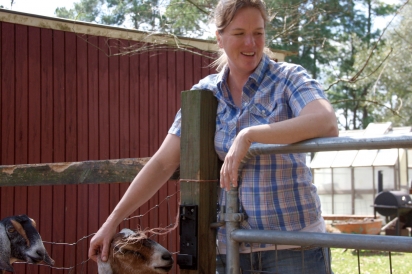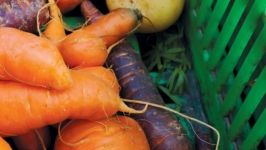Happy as a Pig on a Dairy Goat Farm: All We Need Farms Grows Happy Goats, Healthy Milk, Wholesome Pops for Houston
At 8 on a cold February morning, Stacey Roussel arrives at her goat dairy in Guy, Texas—a short three miles from her house. Her herd of Nubian and Lamancha goats eagerly await inside the barn. Roussel greets them warmly and opens the barn door. Out trickle Agnes, Blue, Clover, Maggie and Scarlett, ready to snack on some alfalfa. “They really like it; it’s like a Snickers bar for them,” Roussel says.
It’s kidding season and the rest of the herd is at Roussel’s home. As Roussel heads into the dairy building, her youngest goat, Blue, follows her inside. “Go get some alfalfa, girl, you need to put some weight on,” she says, sending Blue back outside.
So begins a day of work at All We Need Farm, where for the past four years Roussel has been producing award-winning goat milk gelato pops from the milk of her herd. By focusing on the health of her animals and of her land, Roussel strives to make the best product she can while minimizing her environmental impact.
“A lot of the times we think of ourselves as separate from our environment,” she says. “My approach is that I’m not. I am part of what’s happening here, so how can I make the least amount of impact and do good?”
Inside the dairy, Roussel gets to work folding towels, cleaning the pasteurizer and getting ready to milk the goats. She used to do all the milking herself, twice per day, but now she has a small group of women, including her 18-year-old daughter, Emelie, who take shifts milking the goats.
When possible, Roussel doesn’t give the same person more than two shifts in a row because milking can be a grind. “If you’re having a bad day, you have to leave that behind, because those animals, they can feel your energy and if you’re having a bad one, they’re going to make it worse,” she says, laughing.
Before she started her goat dairy, Roussel spent years growing and selling vegetables in and around Houston. She pursued her passion for gardening after leaving her job in accounting—a career she says didn’t fit her personality. She ran five community gardens in Houston and moved with her family to four acres in Needville. There, she grew produce for Houston chefs, including Monica Pope and Bryan Caswell, and ran a CSA program that started with 10 families and grew to 75. She also added chickens for eggs, heritage pigs for pork shares—and two goats, because her daughters had asked for them for Christmas.
There were other benefits to having goats. Because they’re ruminants, Roussel knew they help increase soil fertility for her vegetables. “They weigh less [than other animals], so they have less impact on the ground while returning the benefits,” she said. Caring for them would also teach Emelie and her sister, Jessie Claire, responsibility and how to care for another being.
In 2013, Roussel decided to dedicate herself to goats following the advice of the mentors she was assigned during a holistic management training program for new farmers. They told her to choose one thing and focus on doing it exceptionally well. Emelie and Jessie Claire had their opinions. Says Roussel, “They said, ‘Mommy, please don’t make us pick okra. We want these goats. Can we do more with these goats?’”
At the time, the two goats had multiplied to 10 and Roussel was already getting some milk from them. There were already several soft goat cheesemakers in the area, so Roussel considered making hard cheeses or yogurt. But she realized that no one was making goat milk confections, so she started experimenting with ice cream and settled on goat milk pops.
Roussel now has one employee dedicated to making the popsicles, which come in flavors like vanilla, strawberry, chocolate and cajeta (Mexican caramel), as well as inventive flavors like peppermint dark chocolate or King Cake, and seasonal flavors like sweet corn and peach. What’s available at the farmers market drives the flavors Roussel creates.
“At the end of the market, if I see the blueberry guy has four crates of blueberries left, I’m going to buy them and turn them into popsicles,” she says. The pops have no more than three ingredients and they have a rich, creamy quality that may help explain their popularity. The goat milk is also a plus given that research shows it may be easier to digest than cow milk and has high vitamin and mineral content because the goats graze on pasture.
On that cold February morning, Roussel was on milking duty. The goats walk into the milk room and hop onto the milking platform, where they feed while Roussel cleans their udders and does a wellness check before hooking them up to the milking machine. Cleanliness is of utmost importance to Roussel, not only to meet strict state requirements but also to preserve the purity of her milk. “Our product is best when our goats are healthy and happy,” she says.
For Roussel, that health and happiness is achieved in part by being a good steward of her land. The front of the 13-acre property where the dairy sits is a pasture that Roussel has been slowly returning to native prairie grasses. The back has a small pond—where alligators from Brazos State Park often wander— and a dam, which make that part of her land very wet.
“Most of Texas has issues of no water. We have the opposite problem of sometimes too much water,” Roussel said.
Her goal, after her prairie restoration project, is to find a way to manage and utilize that water in the best way possible, so that she can take advantage when there is an overabundance of water and when it’s dry. That, in turn, can improve the grasses her goats feed on and by extension their health and the milk they produce.
“Without grass that is conducive to my goats having good forage, none of that stuff in the [dairy] building can happen,” Roussel says.
Her goats have a much smaller water footprint than cattle, but they have to drink clean water from a well that is tested by the state. Roussel does what she can to minimize waste and reuse water in other areas of the dairy. She uses hot water from the pasteurizer to wash dishes, for example, and collects rain water. She hopes one day to invest in a filtration system that will allow her to use that collected water for her goats, but for now she uses it for when the pasture is dry.
Caring for goats hasn’t been particularly easy, but they are Roussel’s favorite part of the job. “They’re like my children,” she says. But as hard as the job may be, it’s evident from spending time with Roussel that she puts great care into everything she does— from raising her goats to providing jobs to women in her rural community to being a good steward of the land—and she continues to learn and grow, finding ways to do things sustainably for her family, her community, her animals and her farm.
“My mom cried when I told her I was going into farming,” Roussel says. “I think [she’s] proud of me now.


